How we can scale deployed Mule application vertically on cloudhub?
A. Changing worker size
B. Adding multiple workers
C. Mule applications can be scaled only horizontally
D. Option 1 and 2 both can be used
Explanation: Mule applications can be scaled vertically by changing worker size. Mule applications can be scaled horizontally by adding more workers.
An app team is developing a mobile banking app. It took them two months to create their
own APIs to access transaction information from a central database. The app team later
found outthat another team had already built an API that accesses the transaction
information they need.
According to MuleSoft, what organization structure could have saved the app team two
months of development time?
A.
Center of Excellence
B.
Center for Enablement
C.
MuleSoft Support Center
D.
Central API Review Board
Center for Enablement
A web client sends one GET request to the test flow's HTTP Listener, which causes the test flow to call the updateTemp flow After the test flow returns a response, the web client then sends a different GET request to trie getTemp flow's HTTP Listener The test flow is not called a second time. What response is returned from the request to the getTemp flow's HTTP Listener?
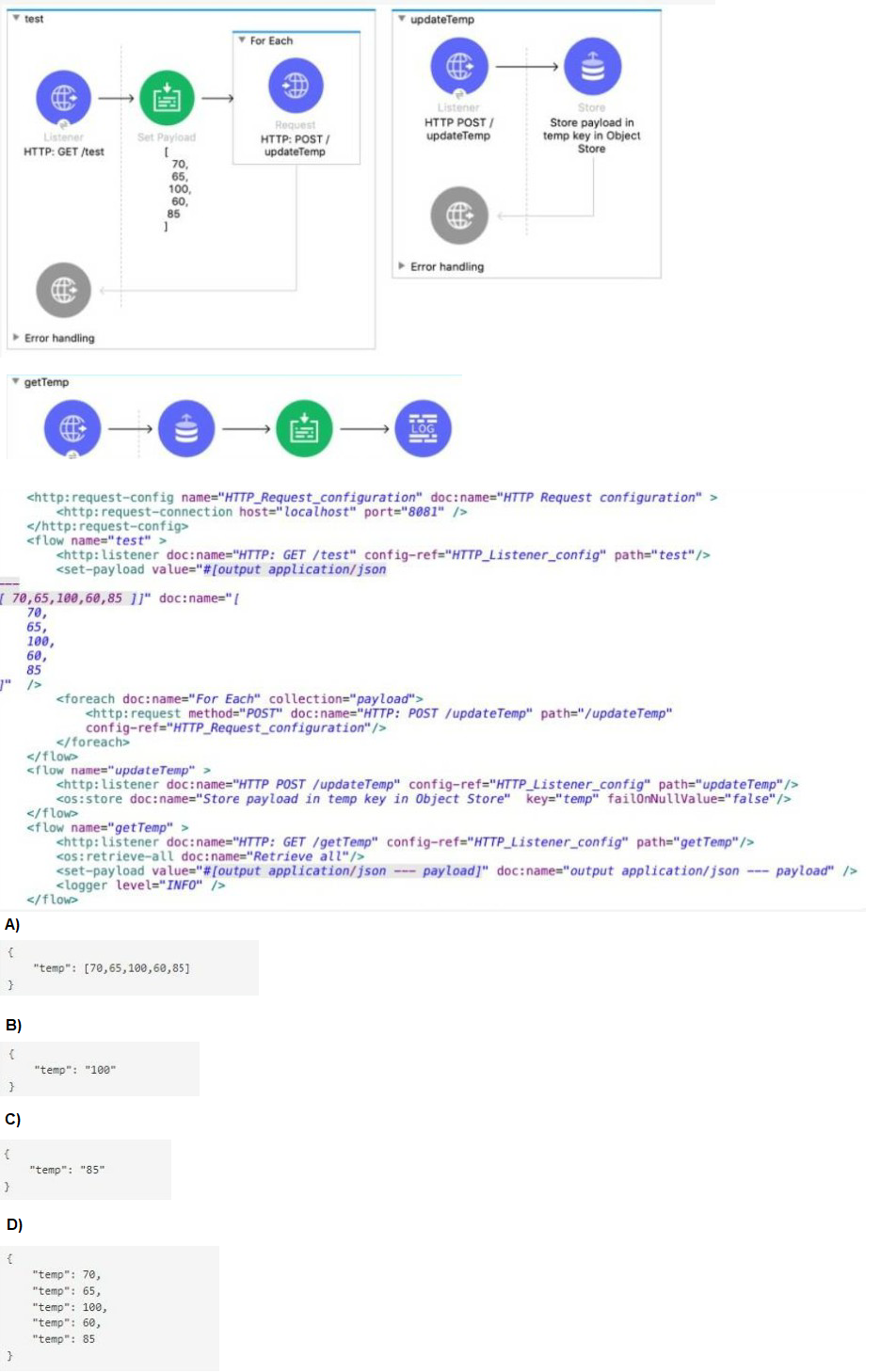
A. Option A
B. Option B
C. Option C
D. Option D
Refer to the below exhibit.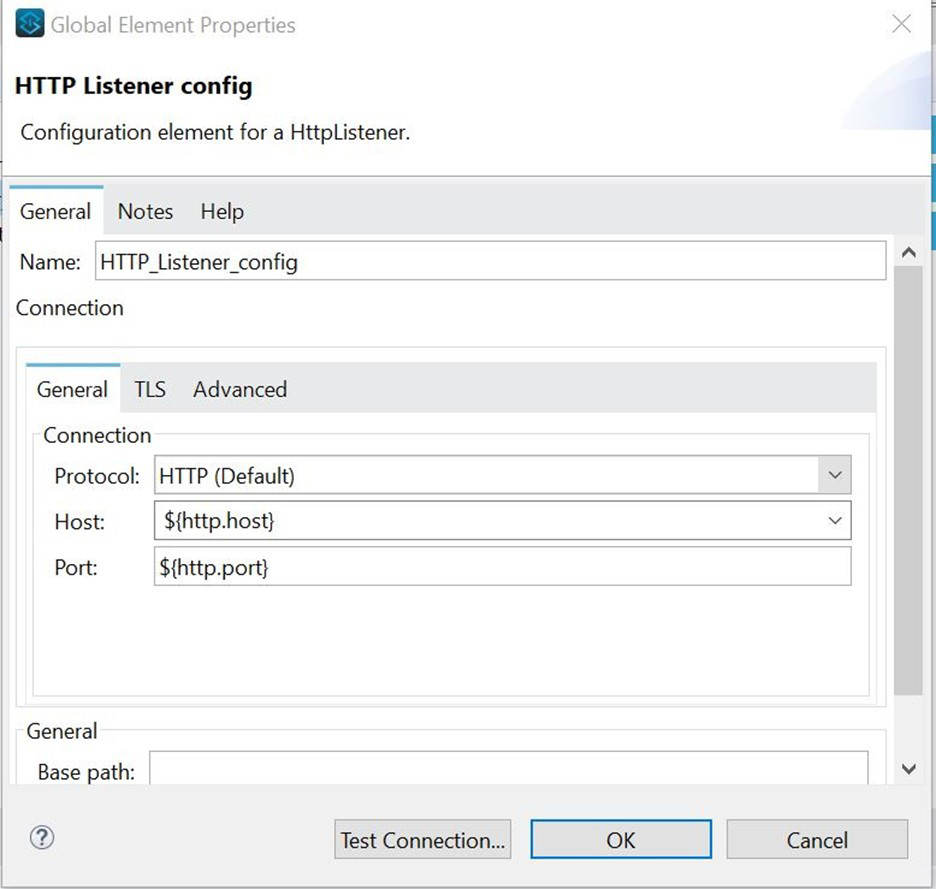
A Mule application configures a property placeholder file named config.yaml to set some
property placeholders for an HTTP connector.
What is the valid properties placeholder file to set these values?
A. 1.http:
2. host = "localhost"
3. port = "8081"
B. 1.http:
2. basepath: "api"
3. host : "localhost"
4. port : "8081"
C. 1. http.host = localhost
2. http.port = 8081
D. 1. {
2. http:
3. basePath: "api",
4. port: "8081",
5. host: " localhost"
Correct answer is as below as it follows the correct syntax
http:
basepath: "api"
host : "localhost"
port : "8081"
Refer to the exhibit.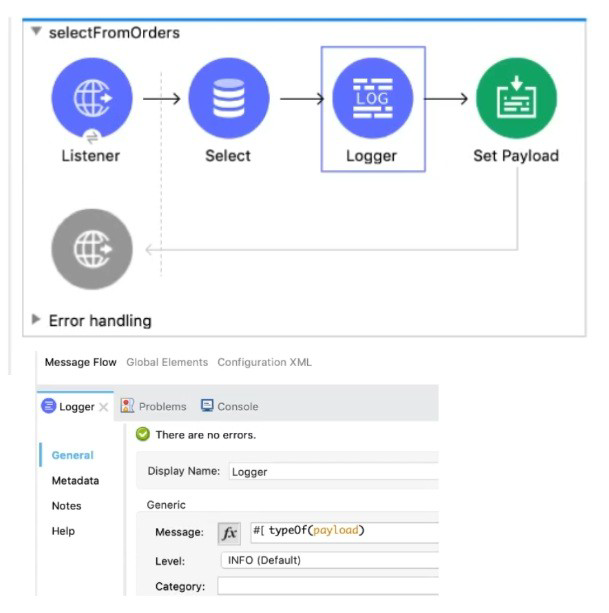
The Database Select operation returns five rows from a database. What is logged by the
Logger component?
A. "Array"
B. "Object"
C. "LinkedHashMap"
D. "CaselnsensitrveHashMap"
Refer to the exhibits.
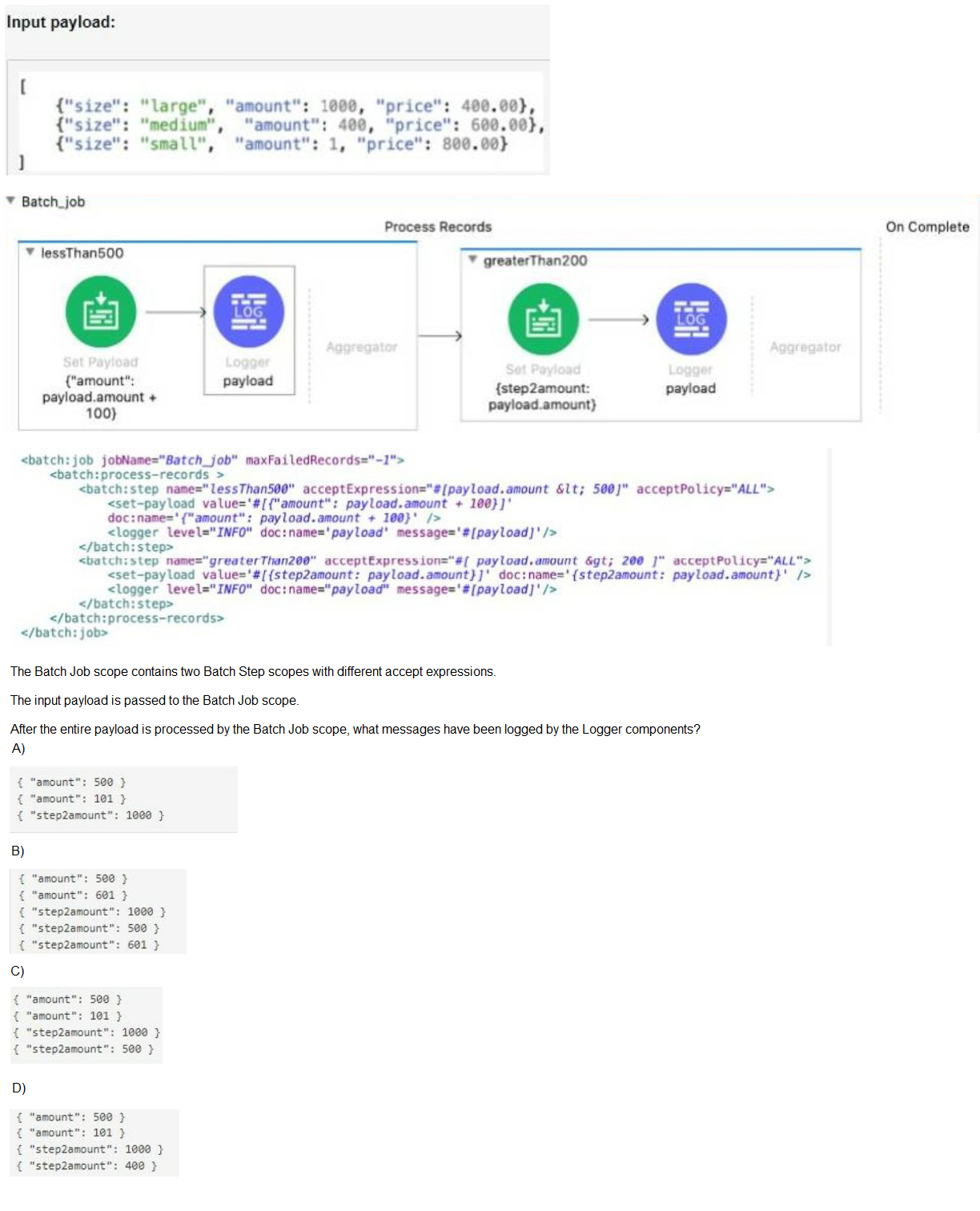
A. Option A
B. Option B
C. Option C
D. Option D
A Database On Table Row listener retrieves data from a CUSTOMER table that contains a
primary key userjd column and an increasing kxjin_date_time column. Neither column
allows duplicate values. How should the listener be configured so it retrieves each row at most one time?
A.
Set the watermark column to the bgin_date_time column
B.
Set the target value to the last retrieved login_date_time value
C.
Set the target value to the last retrieved user_jd value
D.
Set the watermark column to the user_Id column
Set the watermark column to the bgin_date_time column
Refer to the exhibits.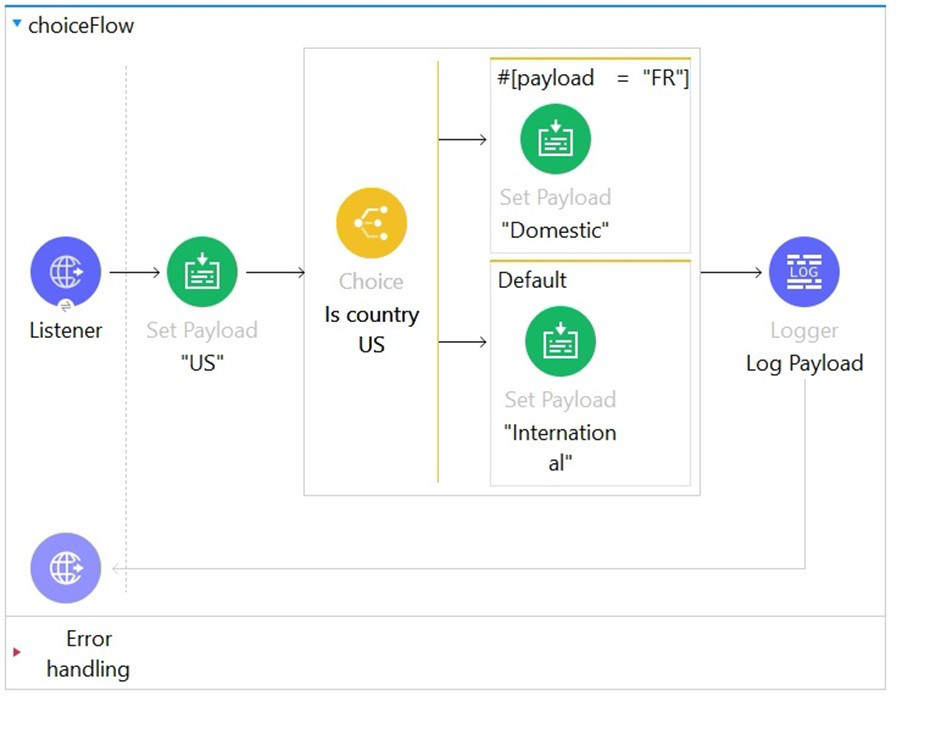
In the choice router, the When expression for the domestic shipping
route is set to "#[payload= "FR"]".
What is the output of logger after the execution of choice router is completed?
A. "Domestic"
B. "International"
C. "US"
D. A dataweave syntax error
To compare, DataWeave syntax is #[payload == "FR"]. In this case only one = is used so it will give syntax error.
| Page 9 out of 29 Pages |
| Mulesoft MCD-Level-1 Exam Questions Home | Previous |